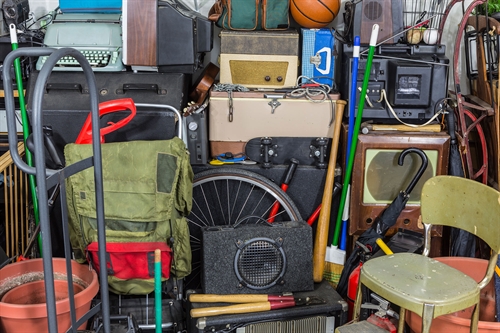Clearing a home can be a stressful, emotional experience, whether it’s because you’re downsizing or administering the estate after the death of a loved one or relative. But with our tips, you can keep the stress levels down.
1. Share the burden of house clearance
Do yourself a huge favour and get help in managing the admin and physical labour of clearing a house. Ask friends and family for support with tasks, or even just company while you do them. Getting family involved in the house clearance after a death might reduce the chances of friction and disputes, and it gives people an opportunity to mention items they’d particularly like.
If the job of clearing the property is too big to handle alone, consider hiring a professional house clearance service. Many companies offer full-service solutions for house clearance, including sorting, packing, and disposing of items.
2. Find the best clearance company
To find a clearance company, ask around for recommendations, or check reviews and testimonials. Look for clearance companies that have a VAT registration number. You can check whether they are on the government’s register of waste carriers, too. Although dealing with a house clearance company by email is convenient and creates a useful documentation trail, it’s worth picking one that is reachable and responsive by phone. Asking for professional advice in a phone call can help you sort the good clearance companies from the mediocre.
Get quotes from two or three house clearance companies to ensure you’re not paying over the odds, or even under the odds (which can be a red flag for poor service). Clearance companies will want to know about any deadlines you may have (for example, if you need to get the property clear before a house sale goes through). They will want an idea of what you’d like them to take away – photographs are often helpful for this, but some will want to do a site visit.
Ask the clearance company how long they expect the job to take, and talk over any access issues – for example, stairways or parking difficulties.
Mention any hazardous items like paint, aerosol cans or batteries that need special disposal to ensure your clearance company can make arrangements.
Remember to discuss what will happen to goods the house clearance company can sell. Some charities will take on a house clearance and treat saleable goods as a donation to raise funds for their cause. Other house clearance services will give you a discount or even some cash for goods they can sell.
Clarify what happens to domestic goods that need to be disposed of, and ensure the service you choose is reputable and properly licensed to dispose of waste responsibly by asking to see a waste collection licence or number.
3. Prepare for the clearance
Before the clearance, pick out items that you want to keep. You can mark them with stickers, or box them up in labelled containers, or put them all into one room that is off limits to the clearance company.
You might want to get the ‘keep’ items out of the house completely, and self-storage is a helpful solution for this. Your stored goods will be covered by Store and Insure’s self-storage insurance even if you’re only storing them for a few days. Not only that, but the coverage includes transport to and from the self-storage unit. We’ve got some advice choosing a self-storage company; and you can get a quick quote from Store and Insure for self-storage insurance.
4. During the clearance
Try to be present at the property during the clearance to check that the clearers remove only the stuff you want gone. If you can’t be present, communicate with the clearance company to make sure nothing gets overlooked. And it’s worth making a note of which goods they are planning to sell or donate, and keeping a record of this.
A good clearance company will look out for any specific items that you may have lost in the house, and they should hand over any sentimental items such as photos, documents and jewellery.
5. After the clearance
After the clearance, this is where your records will really come into their own. Make sure that people get the items that they wanted or that they are entitled to, and follow up on the resale value of goods to ensure that you get the discount or the cash you were expecting. It can be satisfying to see how donated items helped your chosen charity, too.
A house clearance is always going to be demanding work, physically and emotionally, but we hope these tips will help you to navigate this time with ease.


